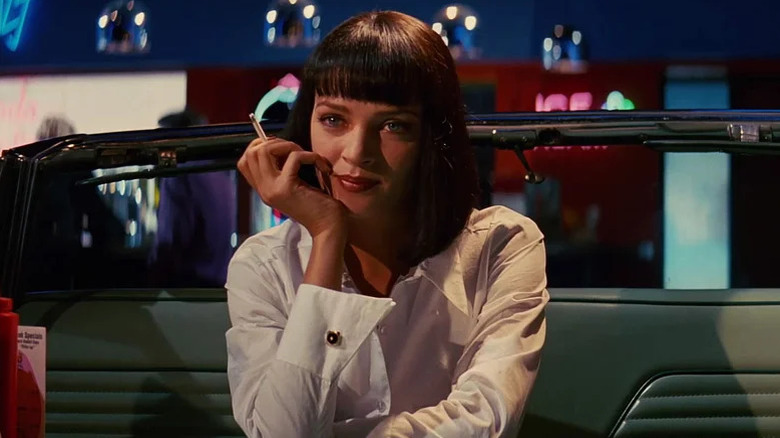Share this @internewscast.com
Quentin Tarantino, known for his unconventional approach to filmmaking, made a significant impact on modern cinema with his fast-paced, ultra-violent 1992 debut “Reservoir Dogs.” However, it was his 1994 masterpiece “Pulp Fiction” that truly established him in the pop-culture landscape. The film featured an array of Hollywood stars and played a crucial role in reviving John Travolta’s career. It also propelled Uma Thurman and Samuel L. Jackson to A-list status, while offering memorable roles for actors like Bruce Willis in an ultra-hip, sometimes shocking, multi-layered crime thriller.
So, what does “Pulp Fiction” really mean? Tarantino drew his title from a mid-20th century style of provocative, sensational stories found in low-quality fiction magazines, commonly referred to as “pulps” due to their use of coarse wood pulp paper rather than premium glossy paper. By employing an art-house style and contemporary filmmaking techniques, Tarantino brought these gritty stories to life on screen, focusing on raw crime and graphic violence.
Centrally featuring two hitmen (played by Travolta and Jackson), the intricate, non-linear storyline weaves together various character arcs, including a mob boss’s wife (Thurman), a boxer (Willis), and a pair of robbers (Tim Roth and Amanda Plummer). All of these characters find themselves on a surprising collision course filled with violence, redemption, and intertwined destinies. The narrative feels like it could have been plucked from the pages of the “pulp” magazines Tarantino aimed to emulate.
Pulp Fiction paid homage to cheap, lurid stories people used to read
The opening scene of Quentin Tarantino’s “Pulp Fiction” offers two dictionary definitions of “pulp,” one of which includes a brief explanation of the old-time magazines, which were known for quickly cranking out fast-paced, scruffy stories that featured graphic violence, bare-knuckled dialogue, eye-catching illustrations, and hard-boiled lifestyles.
Those rough-cut magazines can arguably be seen as a predecessor of comic books, using the same short, striking style and evocative imagery — and Tarantino’s “Pulp Fiction” is no different. The director, whose unique cinematic takes were bred out of video-store-clerk geekdom, turned to his love of those old pulp stories to help him string together his own over-the-top, interwoven tales of crime and capers filled with segmented scenes, snappy dialogue, and shocking violence.
The endeavor proved insanely successful, with “Pulp Fiction” becoming the first indie film to rake in over $200 million worldwide, off a budget of approximately $8 million, during an age where reaching $100 million made a movie a bona fide blockbuster. It is arguably Tarantino’s career-defining work, placing him in the pantheon of contemporary filmmakers who have helped redefine cinema.










